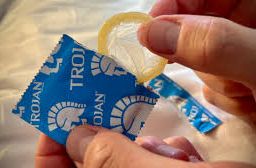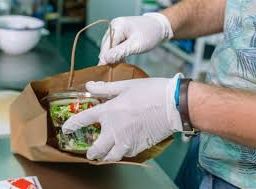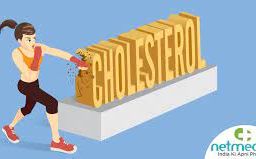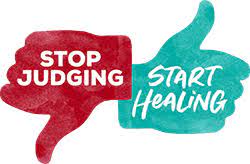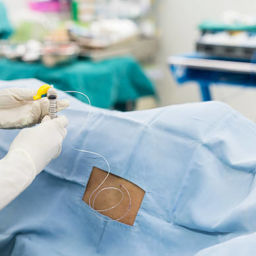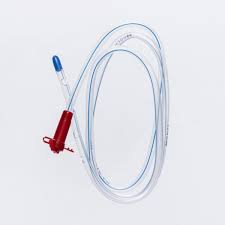
Donating Blood Myths: Does It Really Weaken Your Immune System?
Welcome to our comprehensive guide on blood donation. Whether you’re a first-timer curious about the process or a regular donor, understanding the myths and facts surrounding donating blood is crucial. Let’s dive deep into debunking common misconceptions and shedding light on the life-saving impact of this noble act.

Blood donation is a noble and life-saving act that has the power to make a profound difference in the lives of patients in need. Despite its importance, several myths and misconceptions surround blood donation, preventing potential donors from stepping forward. In this post, we’ll debunk common blood donation myths and emphasize the constant need for blood, showcasing how a single donation can save multiple lives.
Myth #1: I can’t donate blood because I have a medical condition.
Fact: Many medical conditions do not automatically disqualify you from donating. Eligibility criteria can vary by location and organization, so it’s essential to consult with your local blood donation center or check their website for specific guidelines. Most common medical conditions and medications do not prevent you from being a donor.
Myth #2: Donating blood is painful, risky and can make me sick.
Fact: Blood donation is generally painless. You may feel a small pinch when the needle is inserted, but discomfort is minimal for most donors. After donation, you may be offered refreshments to help replenish your energy. There is no evidence to suggest that blood donation blood makes you sick; it is safe and closely monitored by healthcare professionals. The procedure typically feels like a brief pinch, and any mild discomfort disappears quickly. Blood donation is safe when done at a reputable facility with trained staff. They take every precaution to ensure donor safety.
Myth #3: I can’t donate blood if I’m taking medication.
Fact: Many medications do not disqualify you from donating. The eligibility criteria often depend on the specific medication and the condition it is treating. Consult with your healthcare provider or the blood donation center to determine if your medication affects your eligibility.
Myth #4: I can’t donate blood because I have a tattoo or piercing.
Fact: Having a tattoo or piercing does not necessarily disqualify you from donating. Some organizations may have waiting periods (usually a year) after getting a tattoo or piercing before you can donate to ensure infection risk is minimized. Check with your local blood donation center for their specific policies.
 Myth #5: I don’t need to donate blood; there’s enough supply.
Myth #5: I don’t need to donate blood; there’s enough supply.
Fact: Blood is in constant demand to treat various medical conditions, emergencies, and surgeries. There is no substitute for human blood, and shortages can occur, especially during disasters or in specific blood types. Regular donations are crucial to maintaining an adequate supply for those in need.
Myth #6: My blood type is rare, so my donation won’t make a difference.
Fact: All blood types are valuable, including rare ones. While some blood types are more common than others, patients with rare blood types rely on the generosity of donors with compatible blood. Your donation can be the lifeline for someone with a less common blood type.

Myth #7: Donating blood only helps one person.
Fact: One blood donation has the potential to save multiple lives. Blood can be separated into its components, including red blood cells, plasma, and platelets, which can benefit different patients with specific medical needs. Your single donation could help a patient undergoing surgery, a cancer patient, and a trauma victim, all at the same time.
Myth #8: I can’t donate blood because I’m not a universal donor.
Fact: While type O negative (O-) blood is considered a universal donor, every blood type is needed. Hospitals require a variety of blood types for different patients. Whether you’re A, B, AB, or O, your blood can save someone’s life.
Myth #9: Blood donation is time-consuming and inconvenient.
Fact: Blood donation is a relatively quick and straightforward process. The actual donation usually takes about 10-15 minutes, and the entire process, from registration to refreshments afterward, can typically be completed in under an hour. Many donation centers offer flexible hours and even mobile donation units for convenience.
Myth #10: I can’t donate blood if I’ve recently traveled.
Fact: Traveling to certain destinations may affect your eligibility to donate, but this depends on various factors such as the location, duration, and purpose of travel. Blood donation centers have guidelines in place to ensure the safety of both donors and recipients. Check with your local center for specific travel-related eligibility criteria.
Myth #11: Blood donation is only needed in emergencies.
Fact: The need for blood is constant, not just during emergencies. Blood is used for various medical procedures, surgeries, cancer treatments, and ongoing patient care. Donations are essential to maintaining a steady supply for hospitals and clinics.

Donating blood is a simple yet incredibly impactful way to save lives. By dispelling these common myths and emphasizing the constant need for blood, we hope to encourage more people to become regular blood donors. Remember that your donation can be the difference between life and death for someone in need. Your decision to donate blood can truly save lives and provide hope to those facing medical challenges. Visit your local blood donation center to learn more about eligibility and how you can make a life-saving difference in your community. Your kindness and generosity can touch multiple lives, giving the gift of hope and health to those in need.
Disclaimer: The information provided in this content is for general informational purposes only. It is not intended as medical or healthcare advice, diagnosis, or treatment. Always seek the advice of a qualified healthcare professional with any questions you may have regarding a medical condition or healthcare decisions.






